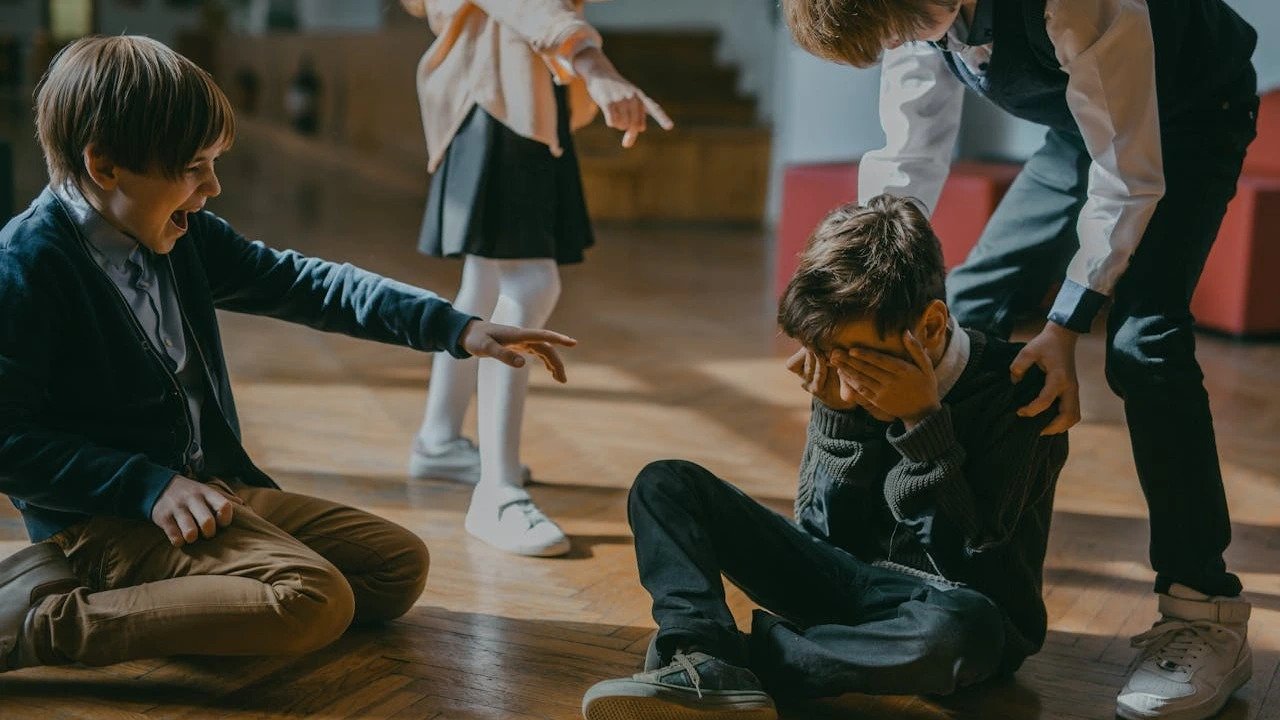Science
Peaks and Valleys of a Lost World: Mapping the Continent Beneath the Ice
28 January 2026

Victim culture is inherently linked to the broader phenomenon of “woke” culture, which involves a special sensitivity to various kinds of discrimination and even potentially possible “hurts” in social situations. Sociologists Jarema Piekutowski and Dominika Tworek shed light on this phenomenon.
Discussing victimhood culture, we navigate the map of the dispute between leftist and conservative groups. A heated debate was sparked by the 2018 book by American sociologists Bradley Campbell and Jason Manning, The Rise of Victimhood Culture. In the work of these researchers, the term “victimhood culture” is seen as unequivocally pejorative.
The authors define it as a set of actions aimed at highlighting the aspect of being a victim in order to gain specific gratifications, such as external support or a certain higher moral status. Consequently, there is a temptation to view oneself as a victim even in situations where it is unnecessary or unjustified
– claims Piekutowski.
Meanwhile, political science professor Wilfred Reilly, in his book Hate Crime Hoax, analyzed 346 allegations of so-called hate crimes and determined that less than one-third of them were authentic. Most of the fabricated incidents supposedly took place on American university campuses.
We recommend: Violence: A Daily Reality for Many Children
Jarema Piekutowski addresses the arguments from the other side of the ideological spectrum.
According to the left, it is not about wrongly attributing oneself the status of a victim, but to reveal who truly is a victim of violence and trauma and to surround such a person with social support and to punish the guilty
– says the sociologist.
The method of punishment for various kinds of discrimination is not about seeking justice legally but excluding the “perpetrator” from public discourse.
It’s about a general consensus that they are unworthy of even a handshake. We’re talking about a form of social ostracism. Critics of this approach point out a problem: when portraying oneself as a victim is exaggerated, it often involves false or greatly exaggerated accusations, such as so-called microaggressions. Then, individuals who are not guilty of actual violence are also excluded from social life, simply for exercising their right to free speech
– emphasizes the researcher.
The issue is that a microaggression – using an offensive term or inappropriate behavior towards individuals from historically marginalized groups – does not have to be intentional by definition. The assessment of the offense is based on the subjective feelings of the person allegedly discriminated against. This leads to absurd situations, like calling it violence to ask a foreigner to say a few words in their native language, or so-called cultural appropriation.
Let’s discuss a situation where ‘privileged individuals’ incorporate some customs of ethnic minorities into their culture, for example, a white woman getting dreadlocks. If I, in the presence of a person from Silesia, used the term ‘gizdy pierońskie’ towards someone, it could be considered a microaggression by them. Because he, as a Silesian with deep ancestral roots, has the right to be offended by me using his language
– illustrates Piekutowski.
Interestingly, the choice of the term “victimhood” by Campbell and Manning was questioned and criticized as a microaggression in itself by representatives of leftist circles.

The authors of The Rise of Victimhood Culture identify three stages in the development of Western civilization. The first is the culture of honor, which proclaims that failing to respond to any insult or humiliation is synonymous with the loss of honor.
In this culture, blame was attributed to the victim. If someone was harmed and did not retaliate, it was their fault. This mindset is well expressed in a passage from William Wharton’s novel Birdy, where a character – a Sicilian by birth – says that if someone in Sicily rapes a man’s wife, even if she defended herself, she will never be the same to her husband as before
– comments the sociologist.
However, in the second half of the 19th century, as our civilization began to move away from unnecessary violence, the culture of honor transformed into a culture of dignity. This culture told us that dignity is something that cannot be taken away from a person.
This culture’s characteristic is perfectly illustrated by the Anglo-Saxon saying: “Sticks and stones may break my bones, but words will never hurt me.” And if I’m bothered that someone uses offensive statements towards me, I can seek solutions to my problem in legal institutions. As we firmly settled in this culture of dignity, we stopped attaching so much importance to the possible loss of honor
– explains Piekutowski.
American researchers argue that historically the third phase is the spreading culture of victimhood in Western countries, where we assign ourselves the moral status of victims, thereby appealing for support on social media and the exclusion of alleged perpetrators from social life. However, the Polish sociologist has his thesis. According to him, the culture of victimhood is a form of return to the culture of honor, except for the element of attributing blame to the victim:
“Today, words are taken very seriously. Sensitivity to one’s dignity or honor is returning, but here the victim gains a high moral status. The most concerning aspect is the loss of self-distance. Because behind all this lies the assumption that humans are fragile and words can destroy them.”
We recommend: Where Are the Limits of Forgiveness? To Forgive Does not Mean to Forget
According to Piekutowski, movements associated with this culture arose in response to the widespread verbal violence on the internet:
Social media allows people to hurt each other. Nowadays, we are dealing with a massive form of aggression, which is cyberbullying. And we know that pursuing one’s claims legally in such matters is hardly possible or worthwhile.
Thus, a positive aspect of the development of victim culture could be greater empathy towards people facing real violence online. And the vision of potential ostracism may serve as a deterrent against articulating harmful content. However, the researcher claims that the most alarming effect of the flourishing of such an ideology is leading to social disorder, defined by one of the fathers of sociology, Émile Durkheim, as “anomie”. It refers to a situation in society where there is lasting instability:
It causes people to break down psychologically and start fighting among themselves even more. Therefore, it brings various disasters. And the more mutual aversion, hatred, and offense there is in society, not only does it make our lives miserable, but in such a state of decay within the state, we can become easy prey for external enemies.
Piekutowski is troubled by the notion of a world where people, who could talk and cooperate with each other, instead offend one another.
Studies show that it’s easiest to hurt someone who already has a low opinion of themselves. So, it would be better to work on strengthening a healthy sense of self-worth or dignity rather than searching for violence everywhere, even where it does not exist. I would refer to the rules of the culture of dignity, which shows that virtue is resilience to various kinds of words
– concludes the researcher.
Translation: Klaudia Tarasiewicz